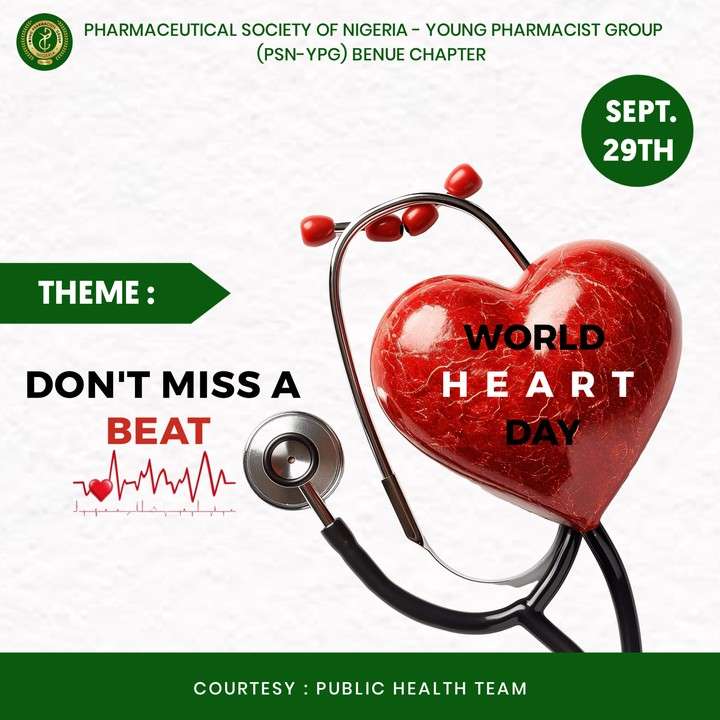World Heart Day: Rising Cardiovascular Diseases in Nigeria Driving Families Deeper Into Poverty

Story: written by Okafor Joseph September 30,2025
Nigeria is witnessing a sharp surge in cardiovascular diseases (CVDs), and the skyrocketing cost of treatment is plunging many households into deeper poverty, according to health experts and recent studies.
As Nigerians join the global community to mark World Heart Day, specialists warn that CVDs have become one of the country’s leading causes of death while also worsening financial hardship. Poor awareness of risk factors, a shortage of cardiologists, and Nigeria’s weak health insurance coverage are compounding the crisis, leaving millions of citizens to bear catastrophic out-of-pocket healthcare costs.
Studies show that healthcare spending for CVD patients has doubled household poverty rates, raising the poverty headcount from 8.13% to 16.4%. About 54.6% of households with CVD patients face catastrophic health expenditure (CHE), with poorer families 60 times more likely to experience financial collapse compared to wealthier households.
According to Akin Osibogun, Chairman of the Nigeria Heart Foundation, CVD prevalence has risen from 10% in 1990 to 28% today, with over 20 million global deaths annually linked to heart disease. He described Nigeria’s health insurance coverage—barely 10% of its 220 million population—as grossly inadequate.
At major hospitals, life-saving procedures remain unaffordable for most families. For instance, valve replacement surgeries at Lagos State University Teaching Hospital (LASUTH) cost around ₦3.2 million, while hole-in-the-heart operations range between ₦2.5 million and ₦2.7 million. With 63% of Nigerians living below the poverty line and average monthly incomes as low as ₦85,700, these treatments remain out of reach.
Hypertension remains the leading risk factor for CVDs in Nigeria, yet one-third of hypertensive patients receive no treatment and another third fail to maintain controlled blood pressure. Experts warn that heart failure, rheumatic heart disease, and coronary artery disease are rising sharply across the country.
Beyond hypertension, Osibogun highlighted air pollution as an emerging driver of heart disease, noting that pollutants reduce oxygen concentration and force the heart to work harder. He also identified ignorance of lifestyle risks—such as excessive salt consumption—as a major barrier to prevention.
He urged Nigerians to embrace healthier habits, including proper diet and regular physical activity, while calling on government to strengthen primary healthcare centres (PHCs) to provide affordable cardiovascular care.
Long-term studies show the crisis is escalating. Research from Lagos revealed an 847.9% increase in CVD admissions between 2002 and 2017, reflecting Nigeria’s epidemiological transition. A 2024 study in Global Heart further confirmed hypertension as the primary driver, contributing to 13.2% of heart attacks and up to 33% of haemorrhagic strokes in the country.
Experts stress that without urgent investment in awareness, prevention, and affordable healthcare, cardiovascular diseases will continue to fuel poverty and claim lives across Nigeria.






